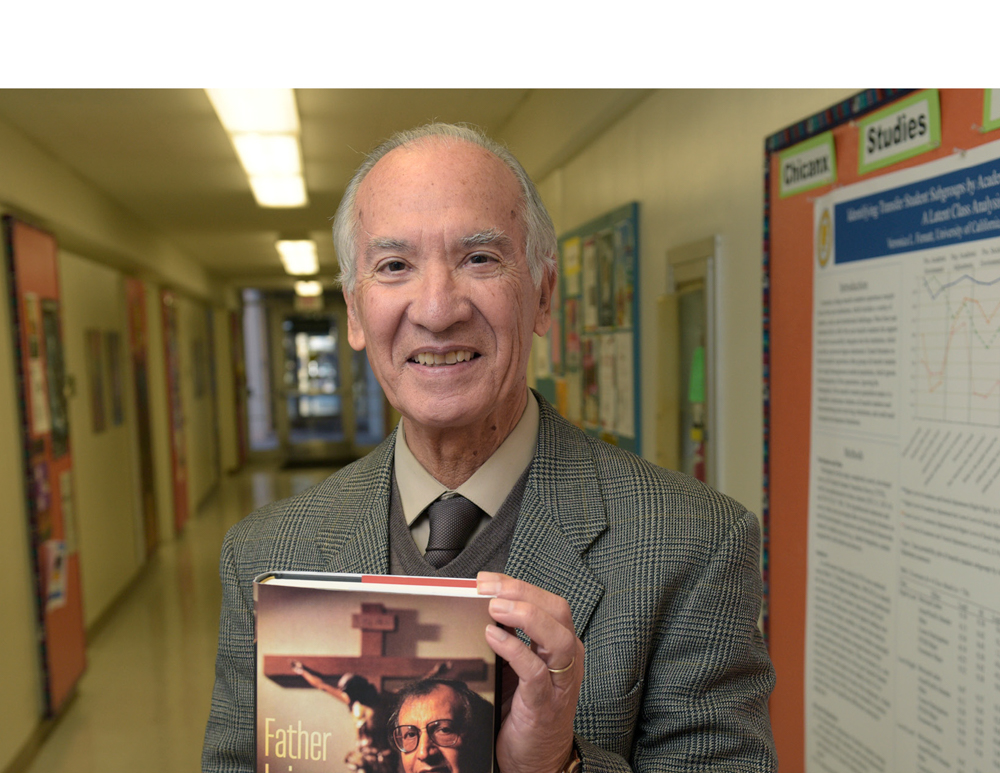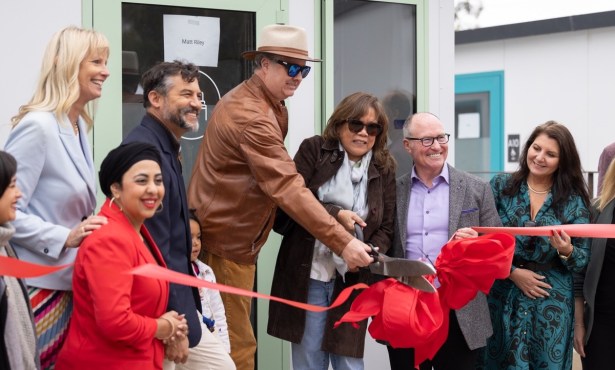UCSB Professor Talks Sanctuary City Movement
There Is Great Need Once Again,' Says Mario T. Garcia

There are currently thousands of Central American migrants along the U.S.-Mexico border seeking asylum in the United States. And there is an administration that is refusing to acknowledge them as legitimate asylum seekers. History shows that the not-so-distant past was also marked by a great influx of Central American migrants fleeing the violence of the civil wars in Guatemala and El Salvador. In the 1980s, about one million Salvadorians entered the United States. About half of those million headed to Los Angeles, where if they were lucky, they found priest Luis Olivares, champion of the Los Angeles sanctuary movement.
In his newest book, Father Luis Olivares: Faith Politics and the Origins of the Sanctuary Movement in Los Angeles, Mario T. Garcia details the life of Father Olivares and the rise of the sanctuary movement galvanized by the Central American refugee crisis of the 1980s. Garcia, a professor in the Chicana and Chicano Studies department at the University of California, Santa Barbara, focuses on Olivares’s life in his book, and he touches on the Reagan administration policies that led Olivares to become a central figure in the Los Angeles sanctuary movement. But the issues of immigration and sanctuary of nearly a half century past is one that is far from over. “The struggle is still obviously around us,” said Garcia.
Garcia describes our current political epoch as “the greatest threat to our democracy.” Trump and his administration do not honor basic principles, said Garcia. “Other conservative administrations believed in some level of civility in the political process.” From the start of his presidential campaign, Trump called into question the humanity of immigrants and the validity of asylum seekers. Throughout his campaign, Trump called for the complete deportation of all 11 million undocumented immigrants in the country. Now in office, Trump, similar to Ronald Reagan in the ’80s, has refused to recognize Central American migrants as asylum seekers and has instead painted them as criminals.
In the ’80s, the Reagan Administration refused to acknowledge the hundreds of thousands of Central Americans asking for political asylum in the United States as legitimate political refugees. Instead, the administration labeled them as “illegal aliens” out to take jobs from “real Americans.” Olivares openly defied and challenged the Reagan administration by declaring La Placita Church a sanctuary for not only Central American political refugees but undocumented Mexican economic refugees as well. As a sanctuary, La Placita Church was off- limits for immigration and border patrol officials.
Olivares’s actions went beyond aiding the plight of Central American and Mexican immigrants. Olivares was taking the church back to its roots, said Garcia, back to liberation theology. La Placita’s pastor was known for linking his homilies to everyday social and political issues. Olivares criticized Reagan’s interventions in Central America and pointed to previous administrations that had lent military support and aid to dictatorial groups in Guatemala and El Salvador. “Refugees and immigrants are not the problem, Olivares’ legacy stresses,” wrote Garcia. “Instead the problem is a political and economic system that exploits them and demonizes them.”
Nowadays, priests are too afraid or too shy to link the gospel message to contemporary issues, said Garcia. “They don’t want to alienate parishioners.” But grassroots movements are imperative for change, said Garcia. “Change doesn’t come from the top; it comes from the bottom,” said Garcia, pointing to the abolitionist, civil rights, and women’s movements as examples.
Father Luis Olivares is a roadmap for the revitalization of the sanctuary movement, said Garcia. He considers the book to be part of his academic contribution to today’s threat against democracy. “[The book] reinforced my own commitment to social justice and standing up in support of people who are being dehumanized,” said Garcia. He hopes his book helps and inspires others to get involved.


